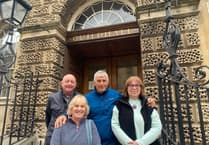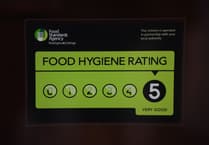Efforts to tackle Bath’s transport problems should be taken “out of the political knock-about” so the work does not stall if a different party takes power, a councillor has said.
Councillor Joel Hirst called for a cross-party approach to deliver on Bath and North East Somerset Council’s “bold and exciting vision” for reaching carbon neutrality by 2030.
He said the proposals in the Journey to Net Zero – which include splitting the city into four “cells” to remove through-traffic, a new mass transit system and measures like congestion charging – were not “anti-car” but about offering people an attractive alternative.
Mr Hirst, a Liberal Democrat, compared the document to “a Santa wish list” and said: “Our challenge is how we deliver on that.”
He also questioned how to take issues like air pollution, public transport and cycling infrastructure “out of the political knock-about”, “to try and get away from the nonsense of this council is anti-car”.
“It’s not about being anti-car, it’s about providing the infrastructure and the incentives to get people out of cars and giving them an attractive alternative.”
Councillor Sarah Warren, the cabinet member for climate and sustainable travel, said the council was not “anti-car” but “pro people” and it would be a “huge advantage” to depoliticise transport.
Councillor Dr Kumar told scrutiny panel colleagues on March 14 he stopped believing in Santa wish lists when he was 10 or 11 because they never materialised. He said there was little detail in the proposals for how to make transport to school greener when many are at the top of hills and there would be little road space with segregated bike lanes.
Ms Warren replied: “I don’t know if you’ve seen photos of Amsterdam from the 1970s but it was as choked with cars as Bath now is. They had a vision of a city that was not choked with cars, where the public realm was a pleasant place for people to be and where it was routine for people to get around on bike and on foot and on public transport.
“Without that vision there’s no hope of getting to where we want to be. Step one is to describe the vision.”
The meeting heard concerns about the impact the proposals could have on disabled people, carers and district nurses who often rely on their vehicles.
Sophie Broadfield, the council’s director of sustainable communities, said: “This is not about being anti-car but about encouraging people to move to modes where they can. The problems of congestion we experience now are impacting those people who need to move around by car.
“There are car parks in the city centre whether or not the council provides them that people will be able to access and park at.
“Nothing in the Journey to Net Zero prevents that kind of legitimate access by car either from someone who’s come a really long way and there isn’t public transport or someone who needs the vehicle for their own mobility or professional needs.
“People who don’t need their vehicle don’t need to drive in. We need to give them the best options that we can so they don’t need to, so that the roads are free for the people who do need them.”
The council is also set to secure £130million from the city region transport settlement that will transform key corridors.
Ms Warren said Bath is a difficult place to run buses but if they have dedicated lanes it will start a “virtuous circle” where drivers realise they are a quicker option to get around.
Putting in safe segregated cycle routes will give parents of children as young as nine confidence that they can ride to school independently, she said, adding that e-bikes can make riding up Widcombe Hill like going along a canal path and it would be “game-changing” to make the technology available to everyone.





Comments
This article has no comments yet. Be the first to leave a comment.